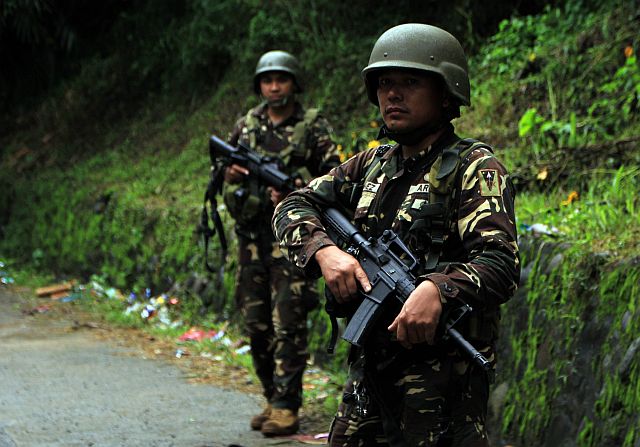MANILA, Philippines -President Rodrigo Duterte’s proposal to require senior high school students to complete a two-year military training course would violate domestic laws and international agreements protecting minors from being involved in warfare, a group of military reservists from the University of the Philippines said on Monday.
At the hearing of the House committee on basic education and culture, UP Vanguard chair Gilbert Reyes said while they support the President’s plan to revive the Reserve Officers Training Corps (ROTC) program, only students at least 18 years old should be covered by the mandatory training.
New military system
Reyes, a lawyer, said House Bill No. 5113 authored by House Deputy Speaker Raneo Abu, would not actually bring back the ROTC but establish a new military system for students.
Besides, he said the proposed measure might only delay the President’s wish as it would trigger legal questions.
“While we may rush into getting this done, we lay ourselves open and vulnerable to (legal) challenges which may delay the implementation,” he added.
“When international protocols are violated, all sorts of questions will be raised against the legality of the program itself,” he said.
Guido Delgado, UP Vanguard national commander, said Abu’s bill was nothing but a “spur-of-the-moment attempt to restore the old ROTC system” while disregarding the “concerns raised against [it].”
He pointed out that the measure also failed to offer safety nets to prevent graft and corruption, which were among issues raised against the program, eventually leading to its abolition.
“It is a backward step in the development of Philippine citizen service laws… It looks to the past and fails to sufficiently address present and future national concerns,” Delgado said.
“There is no attempt whatsoever to curb hazing and other forms of violence, which was the impetus for the abolition of the mandatory ROTC program. Indeed, it merely reinstates the old ROTC system, which admittedly perpetuated these forms of violence,” he added.
Culture of violence, impunity
He said the measure also “promotes militarization and perpetuates a culture of violence and impunity in schools populated by minor students.”
“It effectively sanctions the presence of military forces in schools, contrary to the express prohibition against the use of schools for military purposes,” Delgado stressed.
But Norman Daanoy, chief legal counsel of the Department of National Defense, said the proposed new ROTC system was not intended to train minors for deployment in actual armed battles.
“[The bill] is not a violation of the international protocols because we are not training child soldiers for warfare,” he told lawmakers.
